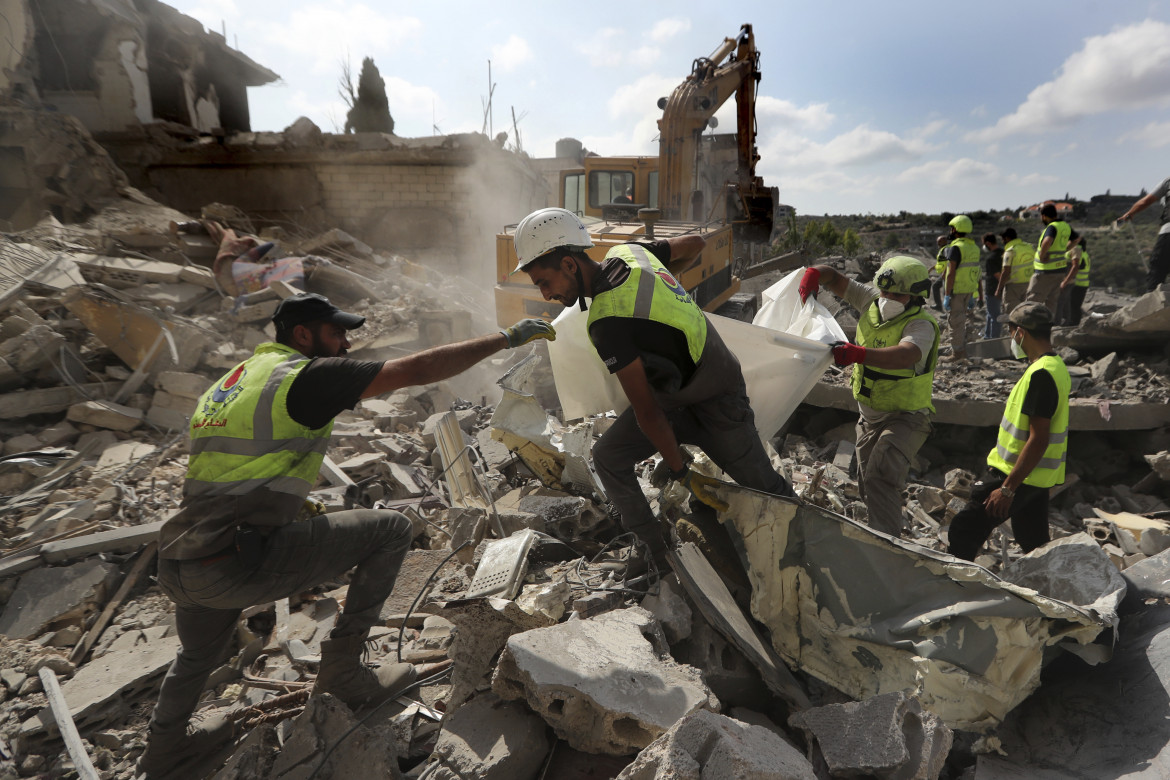Reportage
Meloni quickly visited Lebanon and suggested Israel make ‘an effort’ toward ceasefire
She also dodged questions about the illegal pushback of Syrian refugees to Lebanon. ‘Unfortunately, I’m not familiar with the reports.’

President Meloni's day trip to the Middle East ended on Friday at Beirut's Rafiq Hariri Airport, where, unlike on her previous visit in March, she was willing to take questions from journalists. The topics of the day were the UNIFIL situation, the Lebanese crisis, the Gaza crisis and the issue of Syrian migrants.
We asked her what conditions should be set on the funds the European Union has allocated (and is set to double in 2025) to support the authorities in Cyprus and Lebanon in combating Syrian migration, given that, according to numerous reports – most recently that of Human Rights Watch on September 4 – these authorities are guilty of violating the human rights of migrants. The premier, with something of an embarrassed smile, said she was not aware of either the reports or the violations.
“Unfortunately, I’m not familiar with the reports and I'm not in a position to comment on something I don't know about. I haven’t had an in-depth look,” she said.
On Thursday, a summit was held in Brussels at which one of the topics was a possible return of Bashar al-Assad's Syria to the international diplomatic circuit. Back in June, France had issued an arrest warrant for the Syrian president for war crimes.
Now, Italy is also committed to ensure that Syrians could return to Syria without facing retaliation, increasing its diplomatic efforts to this effect. HRW has already denounced the absence of any guarantees for those already repatriated, including with the use of European funds, as well as the violations committed by the Lebanese and Cypriot authorities.
Another issue on Meloni’s agenda was the war in Lebanon. In Beirut, she met with her Lebanese counterpart Miqati, with whom she held a press conference, and met privately with parliament president Nabih Berri. She gave assurances about “Italy’s commitment to reach a de-escalation, a cease-fire, even if temporary,” and reiterated the need for full implementation of UN Resolution 1701.
In her talks with Mikati and Berri, the premier advocated for the proposed 21-day ceasefire, an initiative promoted by Italy together with other nations, and then called for “an effort on the Israeli side.” She did not go further with the veiled criticism of her ally Israel, not even on one of the hottest issues for Rome at the moment, the situation of the UNIFIL peacekeeping troops (Meloni avoided going into the south of the country, choosing to remain in Beirut, and her visit to the UN mission was lightning-fast, with a quick meeting with the commander of the Italian contingent, Atteo Vitulano).
Earlier in the day, Andrea Tenenti, spokesman for the UN mission, had recalled via video link that UNIFIL had been “five times under deliberate attack” by Israeli forces, while Meloni limited herself to reiterating the importance of the blue helmets' presence in the south of the country, a presence “that must be strengthened while maintaining its impartial nature,” while calling for “all parties” to “strive to ensure at all times that the safety of each of these soldiers is guaranteed.” She suggested the possibility of greater Italian participation in the training of the very weak Lebanese armed forces.
In the morning, Meloni had made a stop in Amman, where, according to a note from the Prime Minister’s office, she had a one-to-one meeting with King Abdallah II in which she “expressed Italy’s appreciation for the role played by Jordan in the delivery of humanitarian assistance to Gaza.”
At the same time, across the Atlantic, U.S. President Biden was saying he had hopes for a cease-fire in Lebanon, but not as much in Gaza. However, on Friday Israel mobilized a new brigade of reservists on the border with Lebanon, while on Thursday night Hezbollah announced that it was moving into “a new phase of escalation in the clash with the Israeli enemy,” with more details to be “announced in the coming days.”
Throughout Friday, blanket air raids continued all over southern Lebanon and the Beka'a Valley. There have been fewer strikes on Beirut: this week, the Israeli air force executed only one air strike in the southern suburb of Haret Hreik. “However, Israel reserves the right to attack Beirut at any time. And, of course, we’re living in constant fear,” says Lebanese journalist Nayla Assaf.
An updated victim toll issued by the Lebanese Ministry of Health raised the number of casualties since the beginning of the conflict in Lebanon, on Oct. 8, 2023, to 2,412 and the number of wounded to 11,267. There were 45 dead and 179 wounded on Thursday.
Lebanon is on its last legs. One month in, the humanitarian crisis due to the 1.5 million internally displaced people is beginning to take its toll – a crisis that could also turn into a health crisis. Protocols for tracing cases of cholera have been activated following the case of an 82-year-old woman found positive in Sammouniyeh, in the north. The climate remains tense, and the Lebanese people, now tired and disillusioned, want concrete answers on when and how the war will end.
Originally published at https://ilmanifesto.it/meloni-arriva-in-libano-mentre-infuriano-i-raid on 2024-10-18
